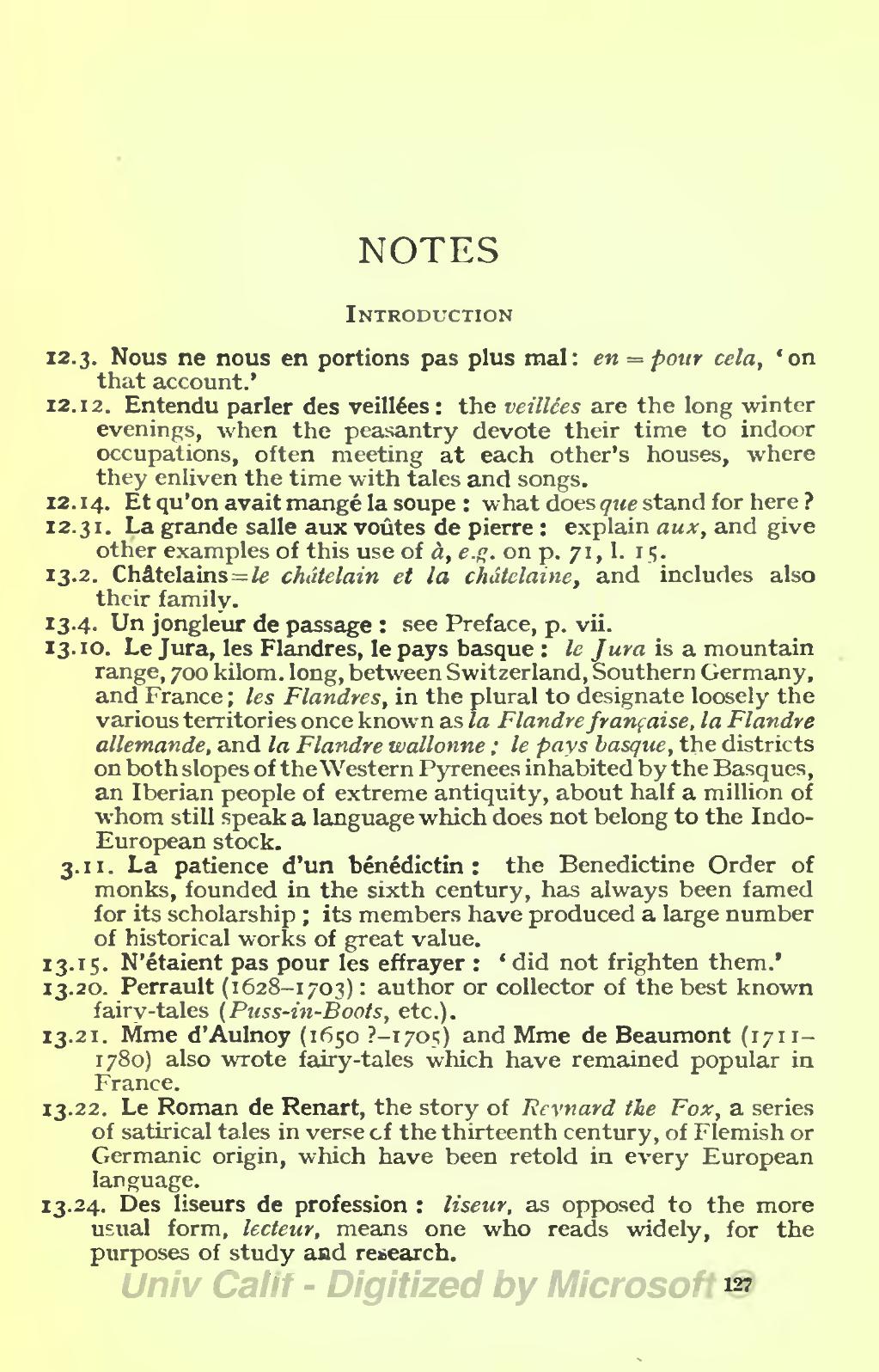Cette page a été validée par deux contributeurs.
NOTES
Introduction
12.3. Nous ne nous en portions pas plus mal : en = pour cela, ’on that account’.
12.12. Entendu parler des veillées : the veillées are the long winter evenings, when the peasantry devote their time to indoor occupations, often meeting at each other’s houses, where they enliven the time with tales and songs.
12.14. Et qu’on avait mangé la soupe : what does que stand for here ?
12.31. La grande salle aux voûtes de pierre : explain aux, and give other examples of this use of à, e.g. on p. 71, I. 15.
13.2. Châtelains = le châtelain et la châtelaine, and includes also their family.
13.4. Un jongleur de passage : see Preface, p. vii.
13.10. Le Jura, les Flandres, le pays basque : le Jura is a mountain range, 700 kilom. long, between Switzerland, Southern Germany, and France ; les Flandres, in the plural to designate loosely the various territories once known as la Flandre française, la Flandre allemande, and la Flandre wallonne ; le pays basque, the districts on both slopes of the Western Pyrenees inhabited by the Basques, an Iberian people of extreme antiquity, about half a million of whom still speak a language which does not belong to the IndoEuropean stock.
13.11. La patience d’un bénédictin : the Benedictine Order of monks, founded in the sixth century, has always been famed for its scholarship ; its members have produced a large number of historical works of great value.
13.15. N’étaient pas pour les effrayer :’did not frighten them.’
13.20. Perrault (1628-1703) : author or collector of the best known fairy-tales (Puss-in-Boots, etc.).
13.21. Mme d’Aulnoy (1650 ? — 1705) and Mme de Beaumont (1711-1780) also wrote fairy-tales which have remained popular in France.
13.22. Le Roman de Renart, the story of Reynard the Fox, a series of satirical tales in verse of the thirteenth century, of Flemish or Germanic origin, which have been retold in every European language.
13.24. Des liseurs de profession : liseur, as opposed to the more usual form, lecteur, means one who reads widely, for the purposes of study and research.
